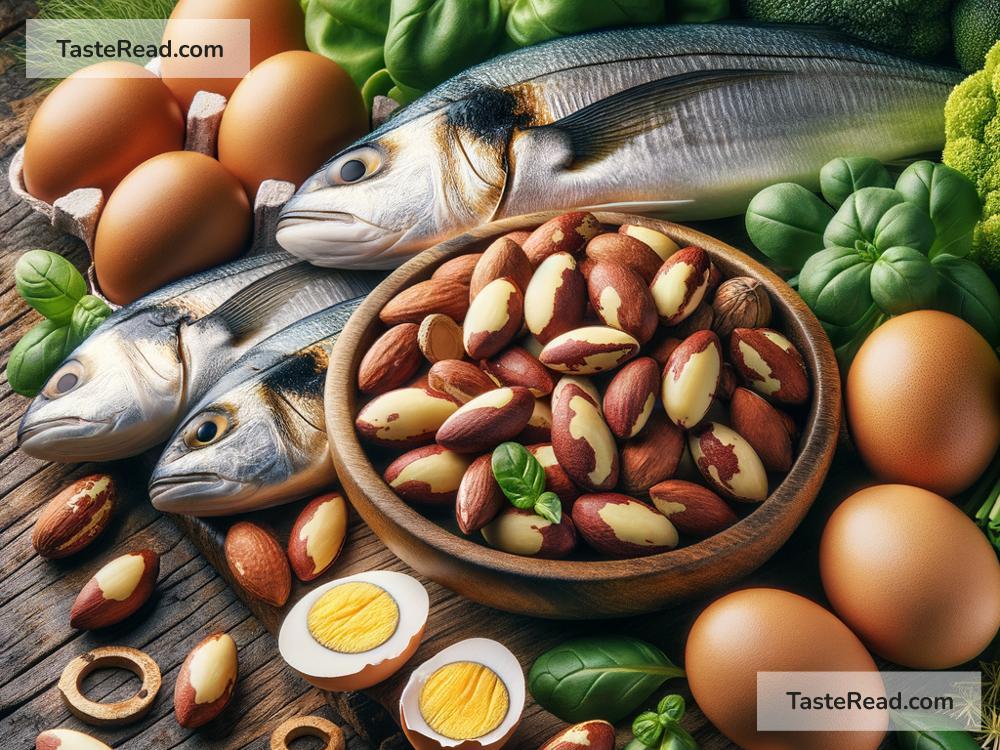The Role of Selenium in Antioxidant Defense: Protecting Your Body from Harm
You’ve probably heard the term “antioxidants” thrown around a lot as part of a healthy lifestyle conversation. Antioxidants play a crucial role in keeping your body in good shape by fighting harmful molecules called free radicals. But did you know that selenium, a humble mineral, is a key player in your body’s antioxidant defense system? In this blog post, we’ll dive into how selenium works to protect your body, why it’s important, and how you can ensure you’re getting enough of it.
What Are Free Radicals and Antioxidants?
Before we delve into selenium’s role, let’s first understand what free radicals and antioxidants are. Free radicals are unstable molecules that can damage your cells. They form naturally in your body through processes like metabolism, but their levels can shoot up due to exposure to pollution, UV radiation, smoking, or unhealthy eating.
When free radicals build up faster than your body can neutralize them, they cause oxidative stress. This has been linked to many health problems, including aging, heart disease, cancer, and neurodegenerative disorders like Alzheimer’s.
This is where antioxidants step in. Antioxidants are substances that stabilize free radicals and prevent them from causing harm. Your body naturally produces antioxidants, but it also gets them from nutrients in your diet—including selenium.
What Is Selenium?
Selenium is a trace mineral, meaning your body only needs small amounts of it to function properly. Despite its small required dose, selenium is a big deal when it comes to maintaining good health. It’s found in soil and absorbed by plants, so we typically get selenium from foods like nuts, seafood, meats, eggs, and grains. Brazil nuts are especially rich in selenium!
Once selenium is in your body, it becomes part of various proteins called selenoproteins. These selenoproteins have many important jobs, including helping your immune system, supporting thyroid function, and, most importantly, acting as antioxidants.
Selenium’s Role in Antioxidant Defense
One of selenium’s most essential roles is helping your body fight oxidative stress. It does this by being a part of a powerful enzyme called glutathione peroxidase (GPx). Let’s break this down in simple terms:
-
Glutathione peroxidase is like your body’s natural fire extinguisher. Its job is to stop free radicals from getting out of control and damaging your cells. Selenium is a key ingredient in this enzyme. Without enough selenium, GPx can’t work properly.
-
Selenium not only helps neutralize free radicals but also protects your cell membranes. Cell membranes act like protective barriers for your cells, and selenium helps keep them intact, even when free radicals try to attack.
-
By reducing oxidative stress, selenium lowers inflammation in the body. Chronic inflammation is linked to many diseases, so selenium indirectly contributes to a healthier overall system.
Why Is Selenium Important for Your Health?
Since selenium helps your body get rid of harmful oxidative stress, it plays a big role in preventing chronic diseases. Here are a few ways selenium benefits your health:
-
Lowers Risk of Heart Disease: Oxidative stress damages blood vessels and contributes to heart disease. Selenium’s antioxidant properties may protect your heart by improving blood vessel health and reducing inflammation.
-
Supports Brain Health: Many studies suggest that oxidative stress is a key factor behind Alzheimer’s disease and other brain disorders. Selenium helps protect brain cells from damage, which could lower the risk of these conditions.
-
Enhances Immunity: Selenium supports your immune system, helping your body fight infections and recover faster from illnesses.
-
Aids Thyroid Function: The thyroid produces hormones that regulate metabolism, and selenium is essential for keeping this gland healthy. It protects thyroid cells and helps the gland do its job efficiently.
-
Cancer Prevention: Some research suggests that selenium could play a role in reducing the risk of certain types of cancer. Its ability to fight oxidative stress and boost immunity may contribute to this protective effect.
How Much Selenium Do You Need?
The recommended dietary allowance (RDA) for selenium depends on your age and gender:
– Adults generally need about 55 micrograms per day.
– Pregnant and breastfeeding women may need slightly more.
It’s important to get selenium through your diet rather than supplements unless advised by a doctor. Too much selenium from supplements or over-consuming selenium-rich foods can lead to toxicity, which can cause hair loss, nail brittleness, nausea, and other side effects.
Foods Rich in Selenium
If you want to boost your selenium intake, here are some great food sources:
- Brazil nuts: Just one or two nuts can provide your daily selenium needs!
- Seafood: Tuna, shrimp, and sardines are excellent options.
- Meat: Chicken, beef, and turkey contain good amounts of selenium.
- Eggs: A simple, versatile option.
- Whole grains: Brown rice, oats, and whole wheat bread are selenium-rich.
- Vegetables: Garlic, broccoli, and spinach also contain selenium, though in smaller amounts compared to animal-based sources.
Final Thoughts
Selenium might not be a buzzword like “vitamins” or “fiber,” but it’s a vital mineral that plays a key role in protecting your health. By empowering powerful antioxidant enzymes like glutathione peroxidase, selenium helps your body fight oxidative stress, lowering the risk of chronic diseases and keeping your cells healthy.
The best part is that selenium is easy to get from a balanced diet. Eating a variety of selenium-rich foods like nuts, seafood, and grains can ensure you’re giving your body the tools it needs to defend against free radical damage.
Remember, your health is built on small, consistent habits—like eating nutrient-rich foods. So go ahead and add some selenium-rich foods to your meals. Your body will thank you for it!


